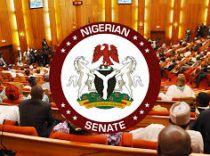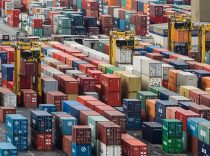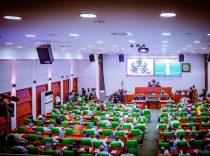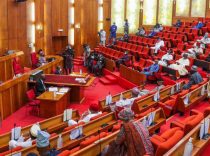3 separate Petroleum Industry Bills have passed second reading in the House. The Bills seek to provide for the establishment of a Legal and Regulatory Framework; encourage further investment in the Petroleum Industry while increasing accruable revenues to the Federal Government of Nigeria and lastly provide a framework relating to the Petroleum Producing Host Community’s participation by cost and benefit sharing among the Government, Petroleum Exploration companies and host communities respectively. Overall, the Bills seek to add value to the petroleum industry by ensuring its compliance with international standards and creating transparency and accountability in the administration of petroleum resources in Nigeria.
Leading debate on the Governance and Institutional framework for the petroleum industry, Hon Mohammed Mongunu (APC:Borno) noted that the bill would transform the Nigerian oil and gas landscape by providing for a transparency and institutional framework in the Industry with a clear separation between policy, regulatory and commercial institutions. To this end, he mentioned that the bill provided for the unbundling of the existing Nigerian National Petroleum Corporation (NNPC) by dividing its governance issues into five separate institutions. That is:
- Oil and Gas Directorate
- Nigerian petroleum Commission
- National Oil Company
- Nigerian Petroleum Asset management Company
- Nigerian Petroleum Research Centre
Hon. Lovette Idisi (PDP:Delta) also spoke on the bill to establish a fiscal framework that encourages further investment in the Petroleum Industry. Describing the Bill as commendable, he stated that it would encourage further investment in the petroleum industry. He also expressed surprise as to how the petroleum industry had survived all this time without a legal framework.
In addition, Hon Nwokolo spoke on the framework relating to petroleum producing host community’s participation Bill as reiterating the need to involve host communities in everything and ensuring they were well compensated.
Further more Hon. Nwokolo also corroborated Hon. Mongunu’s view for unbundling NNPC on the basis of its consistent poor performance. He stated that although the national corporation presently produces 2.3million bbl/d it was projected to produce 3.3bbl/d when unbundled. Other advantages enumerated by the lawmaker for the unbundling of NNPC included that it would create a financially sustainable entity with the ability to source for independent (non-budgetary) funding for joint venture operations. He also mentioned that separate commercial entities were likely to increase government revenue in the Federation account provided distinct and disciplined collection processes were followed, as it would enhance better-cost management among others.
Hon Nwokolo was of the view that the bill creating an institutional framework for the petroleum industry would address the issue of clarity of roles, self-regulation and overlaps. For example, he mentioned that the Minister of Petroleum Resources would exercise general supervision and coordinate the affairs of the Petroleum Industry. Other duties of the Minister’s under the Bill according to the lawmaker include the provision of full diplomatic cover for all petroleum related matters on behalf of the country rather than what is currently obtainable. Presently, the Minister of Petroleum Resources indirectly supervises the Department of Petroleum Resources (DPR) and is the Chairman of the NNPC.
The Bills have been referred to the ad-hoc Committee on PIB constituted by the Speaker of the House of Representatives for further legislative input.





